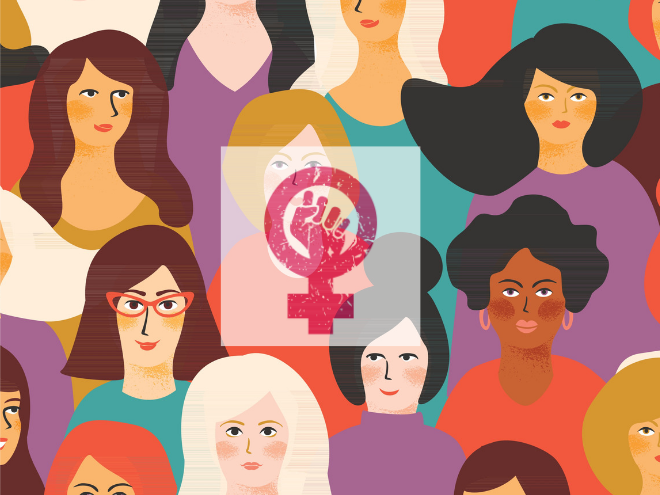|
12.15-12.30 |
Introduction |
Director Helene Aarseth, Centre for Gender Research Rector Svein Stølen, University of Oslo Moderator Anders Giæver, VG |
| 12.30-13.30 |
Key note From danger of ‘gender’ to LGBT ‘invasion’: exploring Poland’s anti-feminism While the right has always been hostile to women’s rights, the new populist right has moved from attacking feminism to demonizing “gender ideology”. A word that sounds ominous and alien in most cultural contexts, ‘gender’ has been re-signified to mean the erosion of family and social bonds, as well as economic exploitation of ‘the people’ by the corrupt global elites. Arguably, anti-genderism is the new right’s way of critiquing neoliberalism. Demonization of gender is a global trend today, but in Poland it has been exceptionally aggressive, with three large-scale campaigns unfolding during less than a decade. My talk – based on research conducted with dr. Elżbieta Korolczuk – examines the underlying worldview, the changing strategic aims, the imagery and arguments used, the actors involved. I discuss the complex interdependence between right-wing populism, ethnonationalism and the ultra-conservative anti-gender movements. Finally, I suggest what forms of feminist resistance have proven most effective. |
Adjunct Professor Agnieszka Graff, American Studies Centers, Warsaw University |
| 13.30-13.45 | Coffee break | |
| 13.45-14.00 |
Feminist problems with the problem: Unpacking the #metoo moment in academia The #metoo moment has made feminist work on sexual harassment and violence more visible beyond academic and activist circles. What is more difficult to pinpoint, however, is how exactly has the #metoo phenomenon reshaped contemporary feminist narratives around tackling these problems. When discussing the growing global rightwing backlash against feminist knowledge production and resistance, we tend to assume that the #metoo moment is a priori progressive or positive, something feminist should want to celebrate as forward-looking. In this talk, I map out some of the ambivalences around the #metoo moment in feminist academia and suggest why we should want to remain cautious and critical. |
Postdoctor Redi Koobak, Centre for Womens and Gender Research, University of Bergen |
| 14.00-14.15 |
Have ya seen some of the women we gotta rape? Exploring discourses on rape in an antifeminist Internet forum In this paper, I will examine how participants in an antifeminist online discussion forum debate issues of rape and how they further utilize the term rape in their discussions. And also how discourses on rape are influenced when participants are debating within an antifeminist space that is considered "their own" with little to no influence or interruption from outsiders who have infiltrated this space, where the participants might be more comfortable with expressing their own true attitudes and opinions. |
Master Helene O. Langås, Centre for Gender Research, University of Oslo |
| 14.15-14.30 | Coffee break | |
| 14.30-14.45 |
The Foreign Fighter Phenomenon as a Masculinity Performance This paper explores the connection between masculinity and violent extremism. It analyses the Kosovar foreign fighter phenomenon in the wake of the Syrian Civil War and aims to understand the construction of the warfare-masculinity nexus in the Kosovar Islamist milieu. It rejects the common notion that radicalization is the mere result of brainwashing, or that foreign fighters are simply social outcasts. The redefinition of Kosovar history, the construction of Syria as a sacred homeland of Muslims, and the forming of emotional and even spiritual bonds to warfare are all central features of the construction warfare-masculinity nexus in the Kosovar Islamist milieu. Thus, it not only argues that masculinity and warfare are connected, but that the foreign fighter phenomenon should be viewed as an Islamist masculinity performance. |
Master Sadik Qaka, Department of Sociology and Social Geography, University of Oslo |
| 14.45-15.00 |
Metamorphoses: Autobiography and avatars in manifestos of terrorists and mass killers The crimes, manifestos and youtube videos of Anders Behring Breivik, who was convicted of terrorism after the attacks perpetrated in Oslo and Utøya in 2011, and Elliot Rodger, a mass killer from California, have become important reference points in the online realm that connects the so-called manosphere with extremist, racist and xenophobic blogs and websites. They are referred to by other violent extremists such as Brenton Tarrant, who killed 51 people in two mosques in Christchurch in March 2019, and Alek Minassian, who killed 10 people with a truck in Toronto in 2018, after posting: “The incel rebellion has begun -- All hail the Supreme gentleman Elliot Rodger” on Facebook. What kind of texts are these manifestos? |
Forfatter og seniorrådgiver Aage Borchgrevink, Den norske Helsingforms komiteen |
| 15.00-15.15 |
The paradoxical gender images of the far right During the past two decades, it has become common for organizations and activists on the far right to rhetorically refer to women’s rights and women’s security in order to legitimize anti-Islamic attitudes and strict anti-immigration politics. It differs, however, whether or not the far right groups or individuals support traditional conservative gender politics or whether their arguments are truly supporting gender equality. There are many paradoxes in argumentation around gender related issues in the far right, and this talk will look further into some of these paradoxes. |
Professor Katrine Fangen, Department of Sociology and Social Geography, University of Oslo |
| 15.15-15.45 | Panel discussion |
Feminist backlash? Movements, ideologies and resistance
This year's international women's day seminar explores the complex interdependence between men's movements and antifeminism, between right-wing populism, ethnonationalism and the ultra-conservative anti-gender movements. Invited speakers will shed new light on the attraction of extremist movements, conflicting gender images, as well as potential forms of feminist resistance.

Illustrasjon: Colourbox.no
Published Feb. 4, 2020 3:01 PM
- Last modified Mar. 6, 2020 10:29 AM